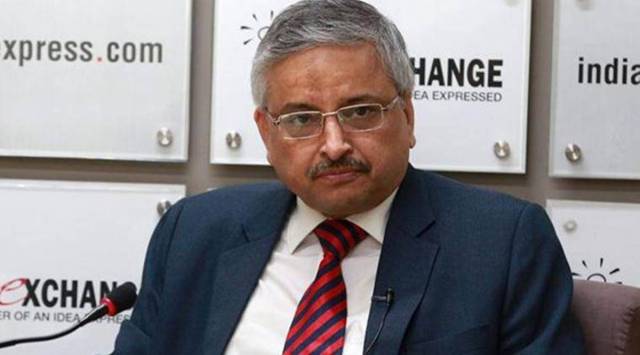The focus, Guleria said, should be on effective home isolation since recovery time for the latest variant is much faster.

“Omicron is affecting the upper respiratory tract and more of the airways, rather than the lungs. That is why we see very fewer patients with a drop in oxygen saturation or the other severe symptoms we saw in Delta. What we are seeing here is more of fever, running nose, sore throat, and a lot of body ache and headache. If any of these symptoms persist, they should come forward and get themselves tested. Because then they can isolate themselves and prevent the infection from spreading to other people in the community,” he said.
On Friday, the Union Health Ministry said that 1,270 Omicron cases have been detected through genomic surveillance, of which 374 have fully recovered.
One of India’s top pulmonologists and a member of India’s Covid task force, Guleria emphasised that hospital beds should be left free to those who are more vulnerable to severe disease.
“There is no need to panic. It is important to understand that, unlike last time, this new variant doesn’t cause that much of a fall in oxygen saturation. Therefore, the focus in those who don’t have comorbidities should be home isolation. You should work on a home-isolation strategy, and not get into panic situations, blocking beds in hospitals, which is not required. Data also suggests that recovery happens much faster, therefore people will tend to improve faster,” he said.
Guleria also said the country is “in a much better position at the beginning of the new year” due to high levels of immunity from past exposure and because the second-dose vaccination coverage has crossed 60 per cent.
Story continues below this ad
“The pandemic is not over. We are seeing a surge in new cases. Therefore, it is time to be more vigilant. We are seeing a new variant in the form of Omicron, but we are in a much better position at the beginning of the new year compared to last year. That is because of multiple factors,” he said.
“First, our levels of immunity are much better. Because of the vaccination drive, almost 60 per cent of the adult population is double vaccinated. A large number of people have also got immunity because of natural infection, and serosurvey data does suggest that we have a good amount of immunity in the population,” he said.
“Second, we are also better prepared in terms of facilities. Whether it is medical oxygen plants, ICU beds, ventilators. So in terms of preparation and our immune response, we are in a better position,” he said.
According to Guleria, Covid-appropriate behaviour will be the most potent tool to fight the new variant. “So therefore, wearing your mask properly when you are going out, maintaining physical distancing and washing your hands is key,” he said.
Story continues below this ad
Referring to preliminary data on Omicron, both within the country and outside, Guleria said testing is key to stopping the spread.
“As compared to the past, there is no reason to panic. Because the data we see on Omicron emerging from Europe, US, and South Africa, suggest it is mild. That it causes flu-like symptoms, and hospital and oxygen requirement is very little. We will have an increase in the number of cases, but hospitalisation should not be as much as it was in the last wave,” he said.
Guleria stressed that vaccines will continue to provide protection against severe disease and mortality, even in those infected by Omicron.
“We have data that show clearly that vaccination is protecting against severe disease and mortality. So it is very important for those who have not been vaccinated due to vaccine hesitancy, to come forward and get the vaccine. And also, some of them who have missed out on their second shot, feeling that the pandemic is over, should come forward and take the second dose. Because you will be totally protected only when you have taken both the doses,” he said.
Story continues below this ad
Guleria also warned that indoor events can turn super-spreaders and cause a spike. “More importantly, because this is a very highly infectious variant, avoiding crowds, which can be a super spreading event, is also important. Especially, indoor events, where there is poor ventilation, can be one area where one can see a surge in cases,” he said.









